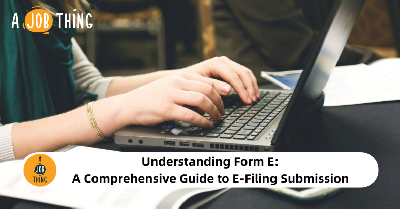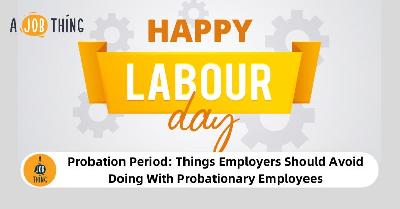
Malaysia Employment Act: Can Employer Reject The Work Flexibility Request?
Create Job Description Using AI
Write appealing job descriptions for any job opening to attract the most qualifield and suitable candidates. FOR FREE.
try now
Malaysia Employment Act: Can Employer Reject The Work Flexibility Request?
The recent amendments to the Malaysia Employment Act have introduced new provisions regarding flexible working arrangements. Employers are now required to seriously consider employee requests for flexible work options, such as remote work, flexible schedules, and compressed work weeks.
Under the new law:
-
Employees have the right to request flexible work arrangements from their employers. This includes the ability to work from home, adjust their start and end times, or compress their work week into fewer days.
-
Employers must respond to these requests in writing within 60 days. They can only refuse the request based on reasonable business grounds, such as the inability to reorganize work among existing staff or the detrimental impact on customer service.
-
If an employer rejects the flexible work request, they must provide a detailed explanation to the employee outlining the specific reasons.
Considerations for Employers Who Want to Reject Flexible Work Requests
As an employer, you may have valid concerns about implementing flexible working arrangements. Here are some key factors you should consider before rejecting an employee's request:
- Impact on productivity and operations: Assess whether the proposed flexible arrangement would genuinely disrupt business operations or significantly reduce productivity. Have objective metrics to demonstrate this.
- Fairness and consistency: Ensure you are applying the same standards and decision-making process for all flexible work requests. Avoid appearances of discrimination or favoritism.
- Alternative compromises: Rather than outright rejecting the request, explore whether you can reach a mutually agreeable compromise, such as a partially remote work schedule or adjusting work hours.
- Longer-term planning: Consider how you can adapt your workplace culture and operations to accommodate flexible arrangements in the future. This may require investments in technology, process changes, or manager training.
- Retaining top talent: Denying reasonable flexible work requests may negatively impact employee morale, engagement, and retention, especially for your best performers. Weigh the long-term business costs.
The new laws aim to promote work-life balance and modernize Malaysian workplaces. As an employer, you must carefully evaluate each flexible work request and be prepared to justify any rejections. A collaborative approach is often the best way to meet business and employee needs.
Frequently Asked Questions :
- What are the key changes introduced by the Malaysia Employment Act amendments regarding flexible working arrangements?
- The amendments give employees the right to request flexible work arrangements, and employers must respond within 60 days. Rejections can only be based on valid business grounds. - Can an employer reject a request for flexible working arrangements?
- Yes, but only if there are valid business grounds. Rejections must be communicated within 60 days and accompanied by a detailed explanation. - What should employers consider before rejecting a request for flexible working arrangements?
- Employers should evaluate the impact on productivity, ensure fairness and consistency, explore compromises, plan for future adaptability, and consider talent retention. - Can an employee appeal a rejected request for flexible working arrangements?
- Yes, employees have the right to appeal through established dispute resolution channels. Employers should have a fair process in place to handle appeals. - How can employers balance business needs with flexible working arrangements?
- Employers can evaluate requests, consider operational constraints, explore compromises, and plan for long-term adaptability. Open communication and collaboration are key.
Read More on Ajobthing :





